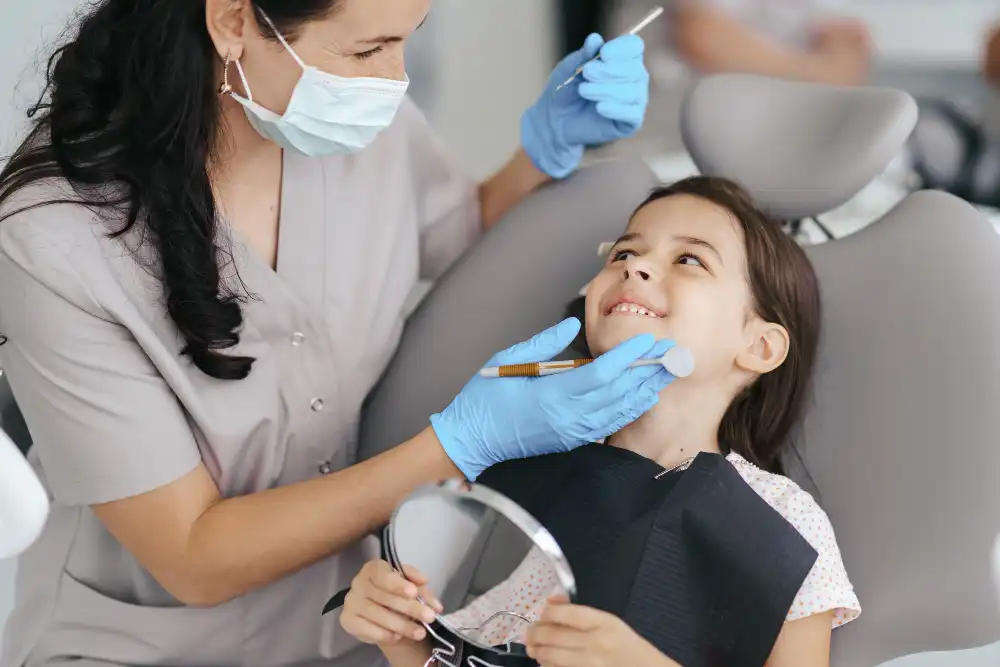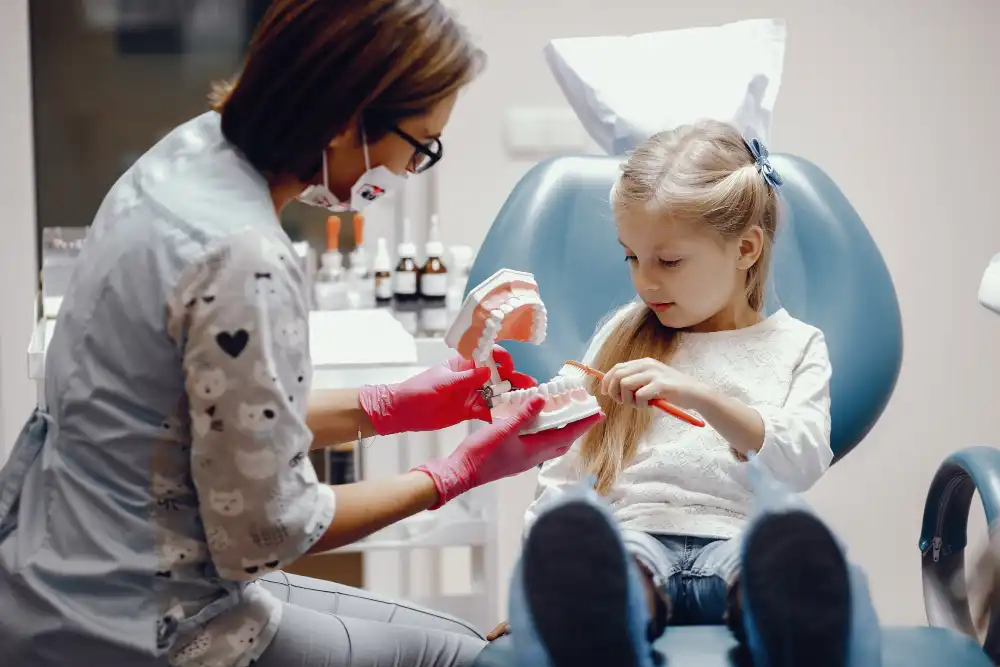Specialized Treatments
Pediatric Dentistry
Pediatric Dentistry
At our Langley dental clinic, we understand that early dental visits shape a child’s attitude toward oral health for life. That’s why we focus on creating a warm, gentle, and fun environment where kids feel safe and supported. From baby teeth to developing smiles, we work closely with families to build healthy habits that last a lifetime.
We’re here to make every visit a positive one while helping your child grow up with strong, healthy teeth and a confident smile.


What to Expect During a Pediatric Visit?
Every child is different, and so are their dental needs. Our approach to pediatric dental care includes gentle cleanings, thorough exams, fluoride treatments, and guidance on daily brushing and flossing. We also monitor how your child’s teeth and bite are developing and check for any early signs of cavities.
We take the time to explain everything in kid-friendly ways, so your child feels comfortable and involved throughout their visit.
Why Families Trust Our Langley Dental Clinic?
- Kid-friendly care with a gentle approach
- A fun, welcoming environment for stress-free visits
- Focus on prevention, education, and confidence-building
- Partnering with parents to support at-home habits
- Trusted pediatric dental care in Langley
Whether it’s your child’s first visit or you’re facing an urgent dental issue, we’re here with the expertise and kindness you need. Our team brings specialized training and a gentle touch to every treatment, helping patients of all ages feel safe and cared for.
Looking for a pediatric dentist near me? Our dentist in Langley BC is here to help your child smile brighter with every visit.


